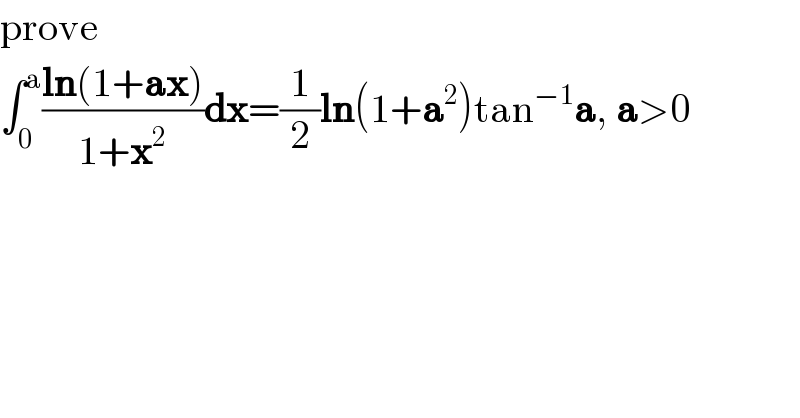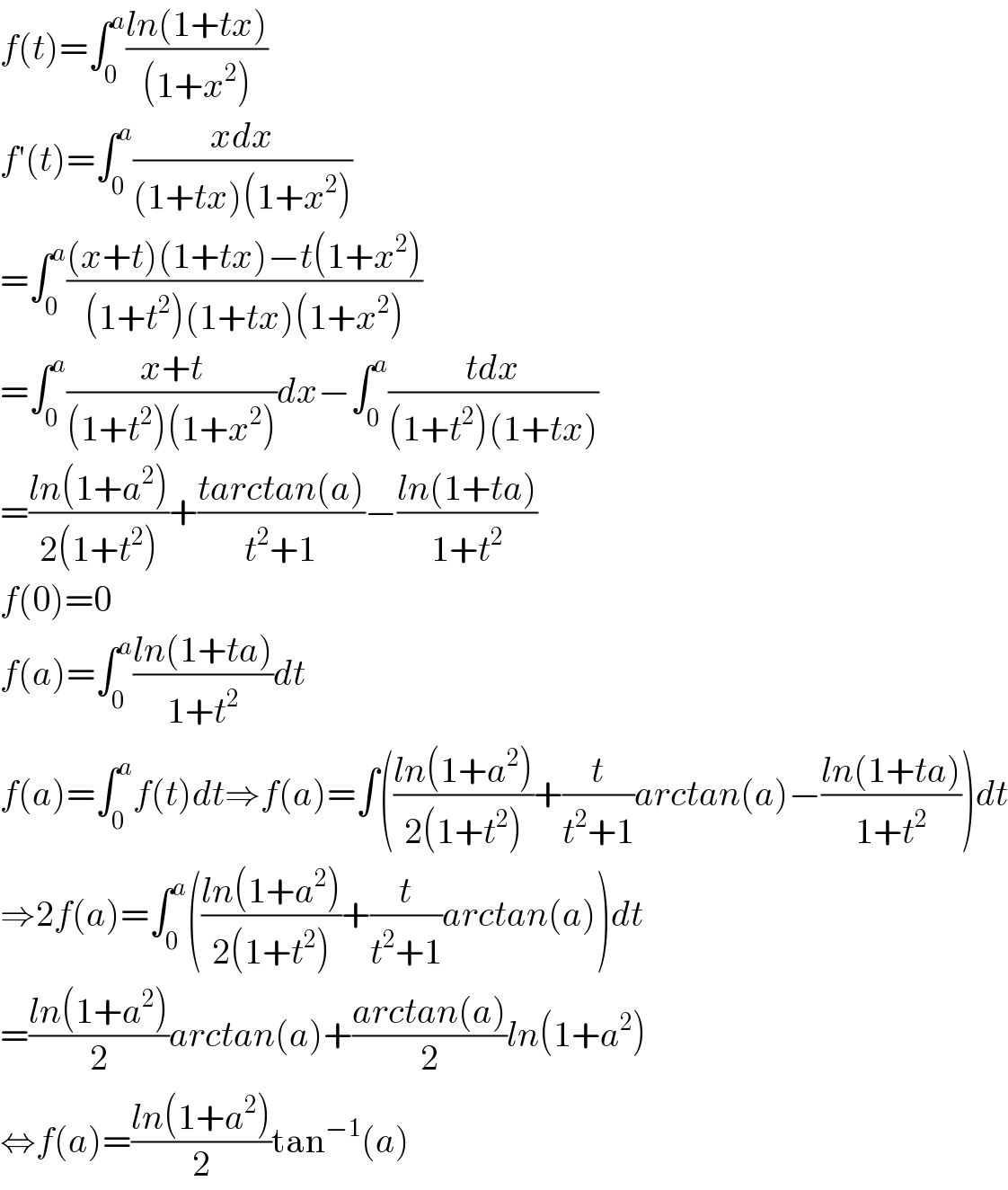
Question and Answers Forum
Question Number 98677 by PRITHWISH SEN 2 last updated on 15/Jun/20

Answered by maths mind last updated on 15/Jun/20

Commented byPRITHWISH SEN 2 last updated on 16/Jun/20

| ||
Question and Answers Forum | ||
Question Number 98677 by PRITHWISH SEN 2 last updated on 15/Jun/20 | ||
 | ||
Answered by maths mind last updated on 15/Jun/20 | ||
 | ||
| ||
Commented byPRITHWISH SEN 2 last updated on 16/Jun/20 | ||
 | ||